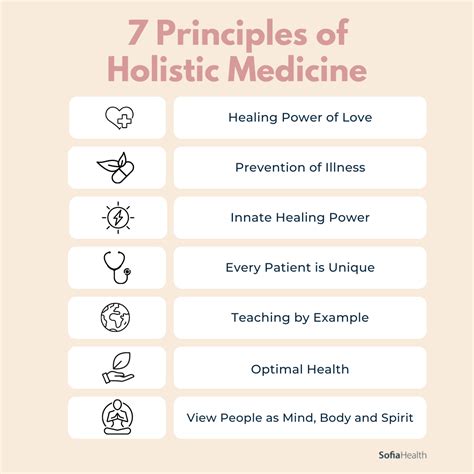Elevate T: What lifestyle boosts men’s testosterone & drive for peak performance?

Testosterone is more than just a sex hormone; it’s a cornerstone of male health, influencing everything from muscle mass and bone density to mood, energy levels, and cognitive function. As men age, or due to various lifestyle factors, testosterone levels can decline, leading to reduced drive, fatigue, weight gain, and diminished overall well-being. The good news is that numerous lifestyle interventions can naturally support healthy testosterone production and reignite that vital drive for peak performance.
The Foundation: Nutrient-Dense Nutrition
What you eat directly impacts your hormone production. A diet rich in whole foods is paramount for optimal testosterone. Prioritize lean proteins like chicken, fish, and eggs, which provide essential amino acids for hormone synthesis. Healthy fats, particularly monounsaturated and polyunsaturated fats found in avocados, nuts, seeds, and olive oil, are crucial for cholesterol production – a precursor to testosterone.
Cruciferous vegetables such as broccoli, kale, and cauliflower contain compounds that help regulate estrogen, preventing it from overpowering testosterone. Meanwhile, zinc and Vitamin D are critical micronutrients often linked to testosterone levels. Incorporate zinc-rich foods like oysters, beef, and pumpkin seeds, and ensure adequate sun exposure or supplementation for Vitamin D.

Conversely, minimize processed foods, excessive sugars, and unhealthy trans fats. These can lead to inflammation, insulin resistance, and increased body fat, all of which are detrimental to testosterone production.
Unleash Power: Strategic Exercise
Exercise, especially certain types, is a potent testosterone booster. Strength training, focusing on compound movements like squats, deadlifts, bench presses, and rows, has been shown to significantly increase testosterone levels. Aim for 3-4 sessions per week, lifting heavy weights with proper form.
High-Intensity Interval Training (HIIT) is another powerful tool. Short bursts of intense exercise followed by brief recovery periods can stimulate growth hormone and testosterone release. Incorporate HIIT into your routine 1-2 times a week, ensuring you don’t overtrain, as chronic excessive cardio can sometimes have the opposite effect on testosterone.
Recharge & Repair: Prioritizing Quality Sleep
Sleep is when your body repairs, recovers, and produces vital hormones, including testosterone. Chronic sleep deprivation can drastically reduce testosterone levels. Studies show that men who sleep less than five hours a night have significantly lower testosterone compared to those who get adequate rest.

Aim for 7-9 hours of high-quality, uninterrupted sleep per night. Establish a consistent sleep schedule, create a cool, dark, and quiet bedroom environment, and avoid screens before bed to optimize your sleep hygiene.
Calm the Storm: Effective Stress Management
Chronic stress is a testosterone killer. When you’re constantly stressed, your body produces cortisol, the primary stress hormone. High cortisol levels have an inverse relationship with testosterone; as cortisol goes up, testosterone often goes down. Prolonged stress can also lead to inflammation and metabolic dysfunction, further hindering hormone balance.
Incorporate stress-reducing practices into your daily life. Mindfulness meditation, deep breathing exercises, yoga, spending time in nature, or engaging in hobbies you enjoy can all help lower cortisol levels and create a more favorable hormonal environment.

Beyond the Basics: Other Vital Factors
- Maintain a Healthy Weight: Excess body fat, particularly around the abdomen, can convert testosterone into estrogen, further exacerbating low T. Losing weight through diet and exercise is crucial.
- Limit Alcohol Intake: Excessive alcohol consumption can disrupt hormone production and liver function, negatively impacting testosterone levels.
- Avoid Endocrine Disruptors: Be mindful of plastics (BPA, phthalates), pesticides, and certain chemicals in personal care products that can mimic hormones and disrupt endocrine function. Opt for glass or stainless steel containers and choose natural products where possible.
- Get Sunlight Exposure: Natural sunlight helps your body produce Vitamin D, which is directly linked to testosterone levels. Aim for 15-30 minutes of direct sun exposure most days.
Conclusion: A Holistic Approach to Peak Performance
Elevating your testosterone and drive for peak performance isn’t about quick fixes or magic pills; it’s about adopting a sustainable, holistic lifestyle. By consciously optimizing your nutrition, engaging in strategic exercise, prioritizing quality sleep, effectively managing stress, and being mindful of environmental factors, you can naturally empower your body to produce and utilize testosterone more efficiently.
Embrace these changes not just as a means to boost a hormone, but as an investment in your overall health, vitality, and enduring drive to live life at its fullest potential. Consistency and patience are key, as these lifestyle shifts build a foundation for long-term well-being and peak performance.










